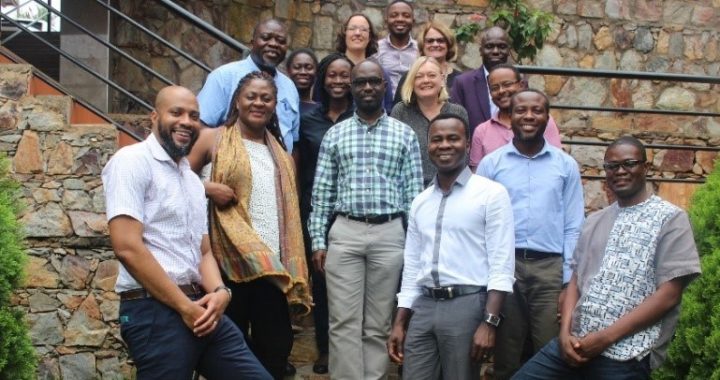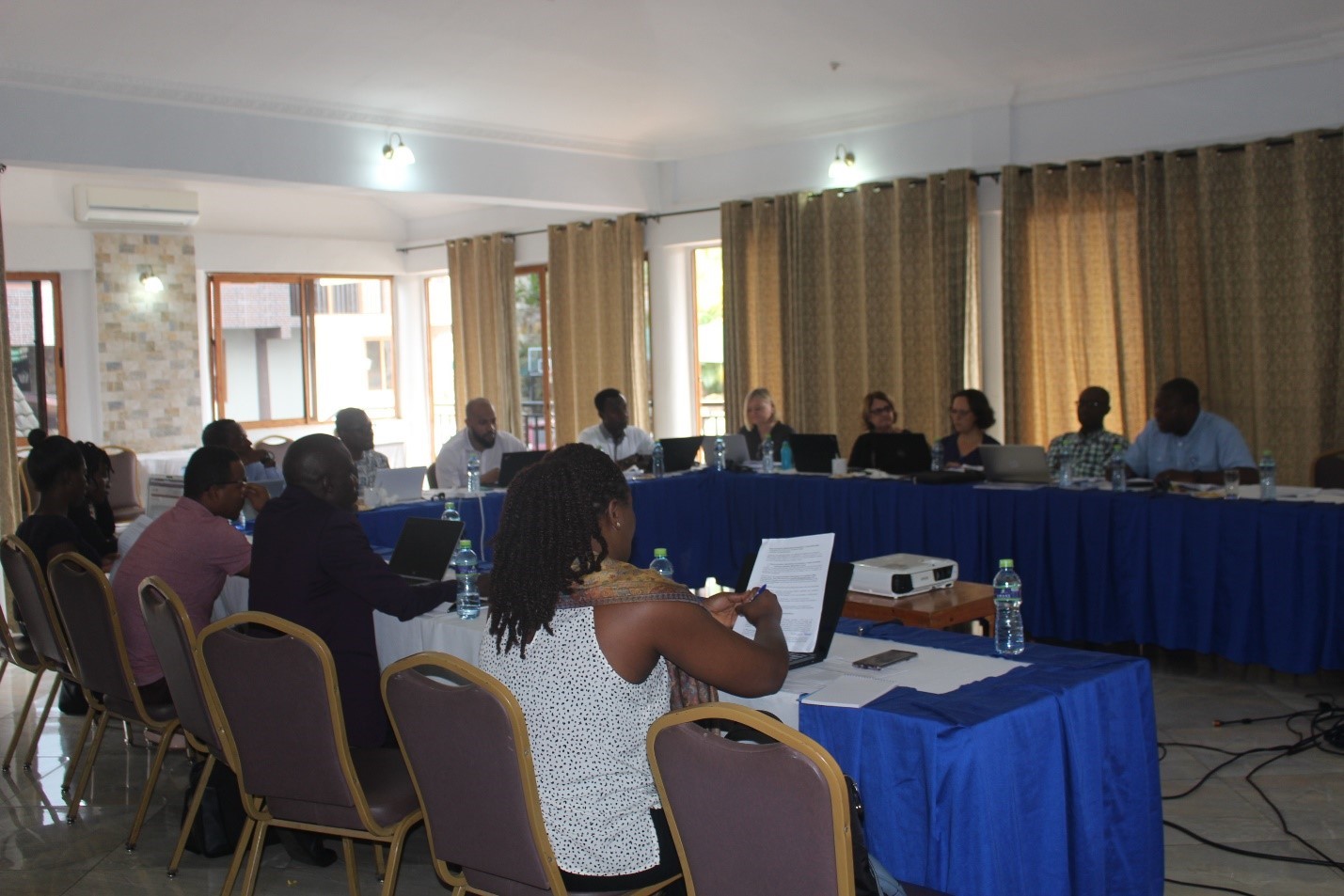
On August 15th 2019, an international team of researchers led by the University of Ghana launched the ‘providing Measurement Evaluation, Accountability and Leadership Support (MEALS) for NCDs prevention’ Project, also referred to as the “MEALS4NCDs Project” in Accra Ghana. The project focuses on food promotion (marketing to children restrictions), and food provisioning (improving school nutrition policies/environment).
Ahead of the MEALS4NCDs project launch, the project team held a capacity building workshop to strengthen the team’s ability to adopt and adapt the Food Promotion and Food Provision protocols and processes developed by the International Network for Food and Obesity NCDs Research Monitoring and Action Support (INFORMAS) for their respective countries. Attending the 2-day workshop held on August 13th 2019 and August 14th 2019 were project partners and collaborators from the University of Ghana, University of Health and Allied Sciences (UHAS), the Ghana Health Service (GHS), the African Population and Health Research Center (APHRC), Kenya, National Research Institute for Sustainable Development (IRD), France, University of Amsterdam, The Netherlands, the Scientific Institute of Public Health (Sciensano), and a representative of the funding agency, the International Development Research Centre (IDRC), Canada
The capacity building workshop was structured around the project’s three work packages; the Food Promotion and Food Provision packages, adapted from INFORMAS and a Community Readiness Assessment package, which is not included in the INFORMAS protocol. The sessions were facilitated by project team members Dr. Stefanie Vandevijvere of the Scientific Institute of Public Health (Sciensano), Belgium, Professor Michelle Holdsworth of the National Research Institute for Sustainable Development (IRD), France, and the MEALS4NCDs Project Advisory Chair – Professor Mary L’Abbe, Department of Nutritional Sciences, Faculty of Medicine, University of Toronto, Canada.
Following a welcome address and introduction of the team present, Dr Amos Laar, the Project Leader/Principal Investigator gave an overview of the project, its work packages and timelines. He also commented on the purpose of the workshop, which in addition to strengthening the team’s ability to implement the project, was to provide an opportunity for the collaborators to assess and make improvements to the technical elements of the project’s protocol, and to be in agreement with the project work plans.
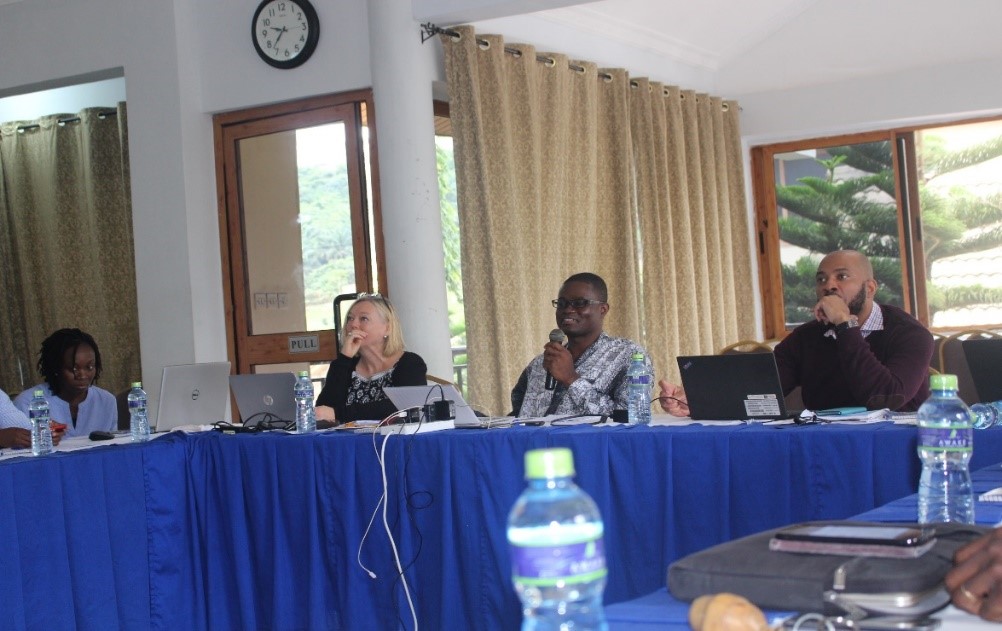
Dr. Amos Laar (Project Leader & Principal Investigator), School of Public Health, University of Ghana
Representing the funding agency, International Development Research Centre (IDRC), Dr Samuel Oti, spoke briefly about the role of IDRC on the MEALS4NCDs project and IDRC’S objective of supporting researchers and institutions to build the portfolio of food environment research across Africa.
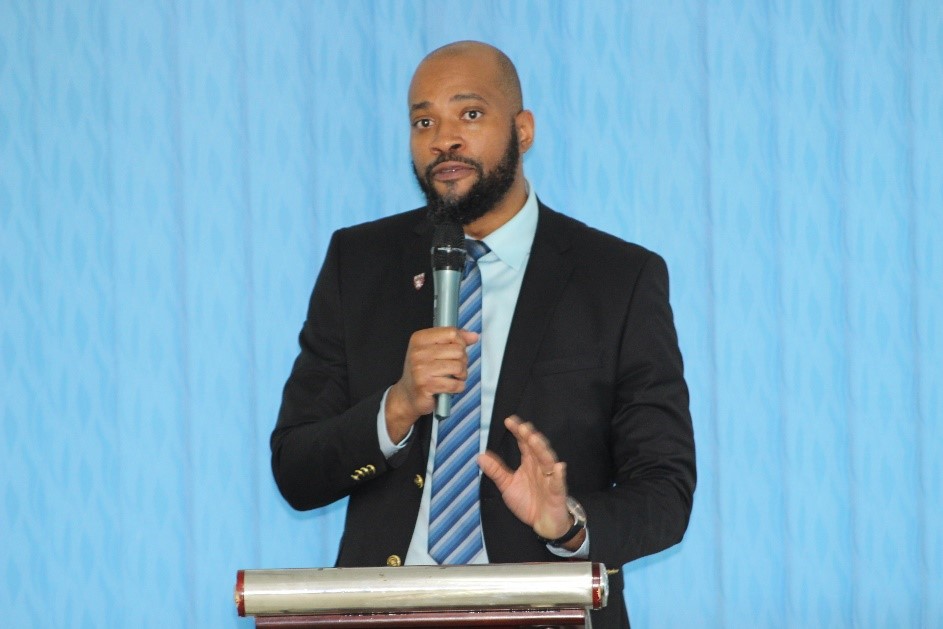
Dr. Samuel Oti, designated IDRC representative
Dr. Stefanie Vandevijvere, INFORMAS Food EPI Module Leader and MEALS4NCDs project Co-Investigator started the training sessions with a presentation on adapting the INFORMAS Food Promotion module to the Ghanaian setting. She began with an introduction of the INFORMAS framework, following which she led the team through a series of discussions on assessing the nature and extent of food promotion marketing to children via television monitoring, outdoor monitoring of advertising around schools, and in-store monitoring. Dr. Vandevijvere emphasized the importance of customising the INFORMAS food promotion approaches to the local context. In Ghana, the project aims to describe the nature and extent of unhealthy foods promotion on television, in-stores, and in and around schools. Details on the Food Promotion Module are available here https://www.informas.org/modules/food-promotion/
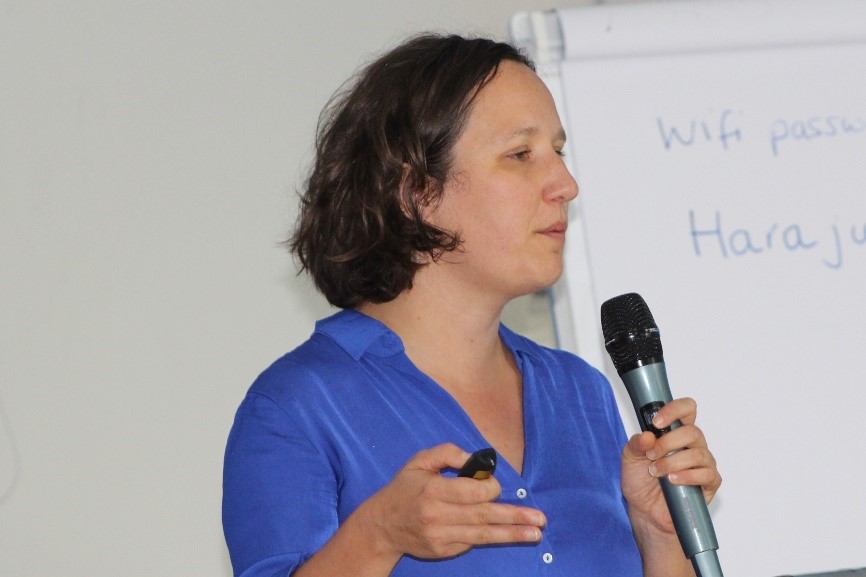
Dr. Stefanie Vandevijvere, Scientific Institute of Public Health, Belgium, Co-Investigator and INFORMAS Food EPI Module Leader
Professor Mary L’Abbe, INFORMAS Food Provision Module Leader and Chair of the project’s Advisory Board delivered the session on adapting the INFORMAS Food Provision Module for Ghana on the second day of the workshop. She took the team through the different stages of implementing the INFORMAS’ Food Provision Module e.g. assessing the nutritional quality of foods provided to children in schools. This provided the foundation for deliberation by the team on how best to apply the approaches in the MEALS4CDs project. The Food Provision work package of the MEALS4NCDs project aims to determine the nutritional quality of foods and non-alcoholic beverages provided or sold in child-serving institutions (primary focus on schools). Details on the Food Provision Module are available here https://www.informas.org/modules/food-provision/
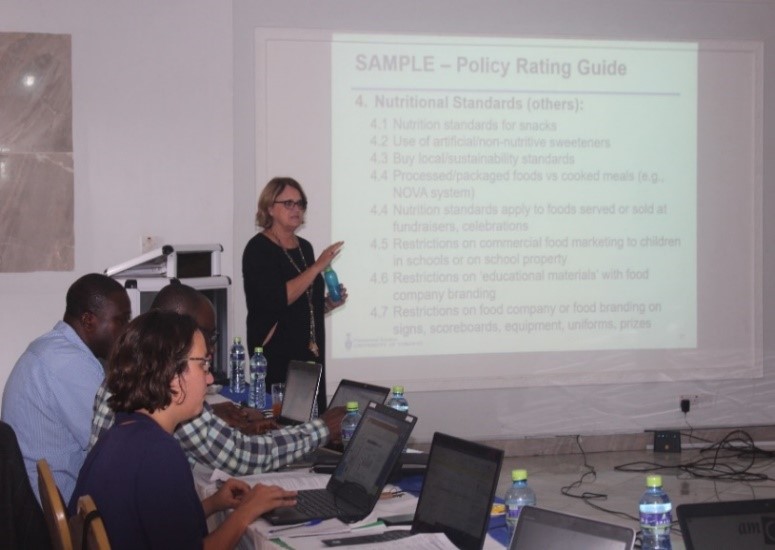
Professor Mary L’Abbe (INFORMAS Food Provision Leader & Chair, Advisory Board of the MEALS4NCDs Project), Department of Nutritional Sciences, Faculty of Medicine, University of Toronto
Principal Investigator of just completed “Dietary Transitions in Ghanaian Cities”/ “Dietary Transitions in African Cities Projects” and Co-Investigator of the MEALS4NCDs project – Professor Michelle Holdsworth concluded the training sessions with a final session on assessing the community’s readiness to implement actions to improve food environment in Ghana. She guided the team through the use of the Community Readiness Model (CRM). Professor Holdsworth mentioned that the purpose of the tool is to provide communities with the stages for developing appropriate interventions that are successful and cost effective. Like the previous facilitators, she also led discussions on the scope of the CRM in the MEALS4NCDs project and shared examples and learnings from the use of the tool in other projects.
This project will use the CRM tool to assess community stakeholders’ readiness to accept, and capacity to implement interventions to improve children’s food environment . Details on the CRM are available here http://www.triethniccenter.colostate.edu/community-readiness-2/
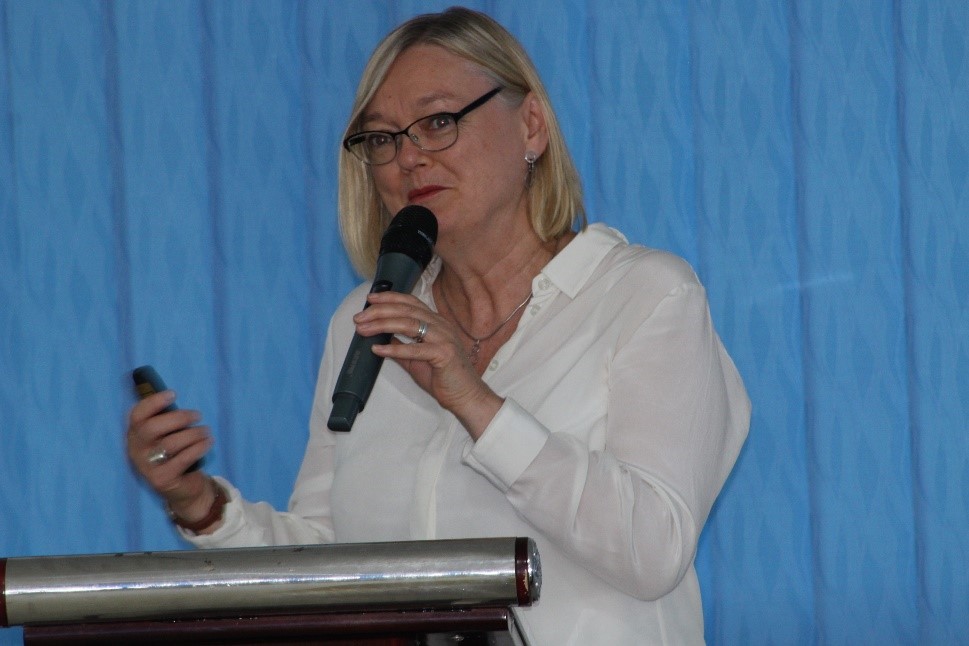
Professor Michelle Holdsworth, (Co-Investigator), National Research Institute for Sustainable Development (IRD)
Following the work packages training, the team discussed project publication, dissemination and exploitation plans, as well as other related project activities.
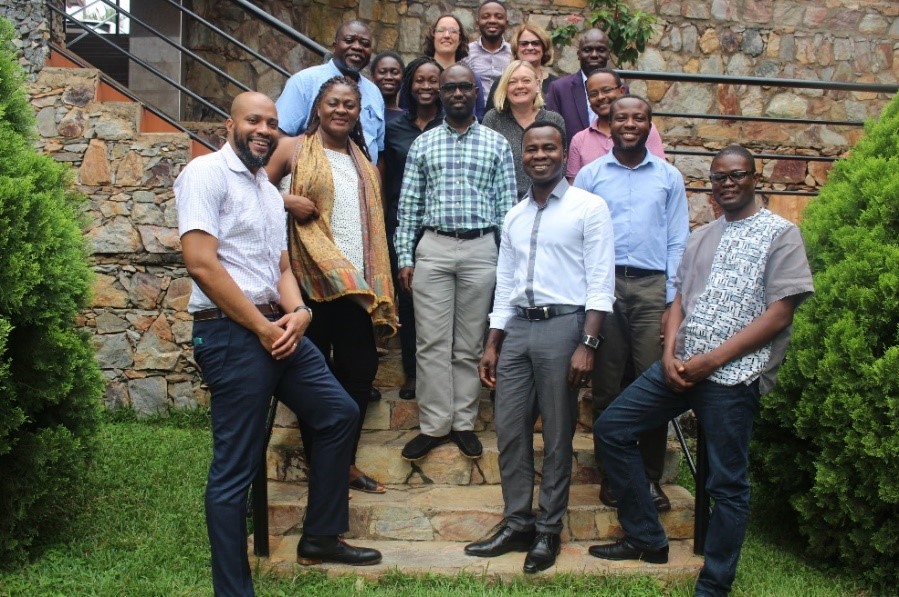
Project collaborators and partners present at the first capacity building workshop
Funding acknowledgement:
The MEALS4NCDs Prevention Project is being implemented with the aid of a grant from the International Development Research Centre (IDRC), Ottawa, Canada. The views expressed herein do not necessarily represent those of IDRC or its Board of Governors.
For further information please contact: Dr. Amos Laar of the University of Ghana, Project Leader +233 (0)24 498 2176; alaar@ug.edu.gh or info@meals4ncds.org or the project website: www.meals4ncds.org
Source: MEALS4NCDs Project

